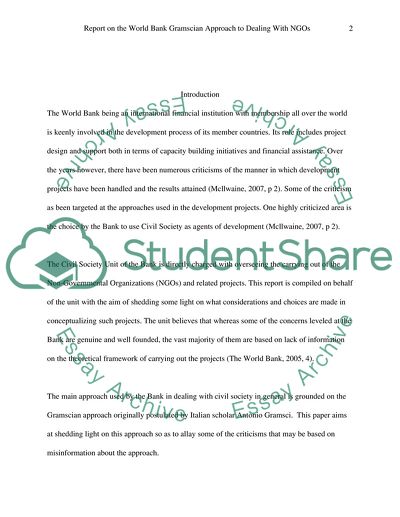Cite this document
(“The Gramscian approach to understanding civil society and how this Essay”, n.d.)
The Gramscian approach to understanding civil society and how this Essay. Retrieved from https://studentshare.org/miscellaneous/1565792-the-gramscian-approach-to-understanding-civil-society-and-how-this-might-be-relevant-to-how-the-world-bank-works-with-ngos-through-its-lending-programme
The Gramscian approach to understanding civil society and how this Essay. Retrieved from https://studentshare.org/miscellaneous/1565792-the-gramscian-approach-to-understanding-civil-society-and-how-this-might-be-relevant-to-how-the-world-bank-works-with-ngos-through-its-lending-programme
(The Gramscian Approach to Understanding Civil Society and How This Essay)
The Gramscian Approach to Understanding Civil Society and How This Essay. https://studentshare.org/miscellaneous/1565792-the-gramscian-approach-to-understanding-civil-society-and-how-this-might-be-relevant-to-how-the-world-bank-works-with-ngos-through-its-lending-programme.
The Gramscian Approach to Understanding Civil Society and How This Essay. https://studentshare.org/miscellaneous/1565792-the-gramscian-approach-to-understanding-civil-society-and-how-this-might-be-relevant-to-how-the-world-bank-works-with-ngos-through-its-lending-programme.
“The Gramscian Approach to Understanding Civil Society and How This Essay”, n.d. https://studentshare.org/miscellaneous/1565792-the-gramscian-approach-to-understanding-civil-society-and-how-this-might-be-relevant-to-how-the-world-bank-works-with-ngos-through-its-lending-programme.


